Apple Vision Pro is not wireless and this is driving some people to distraction
The agony of a battery
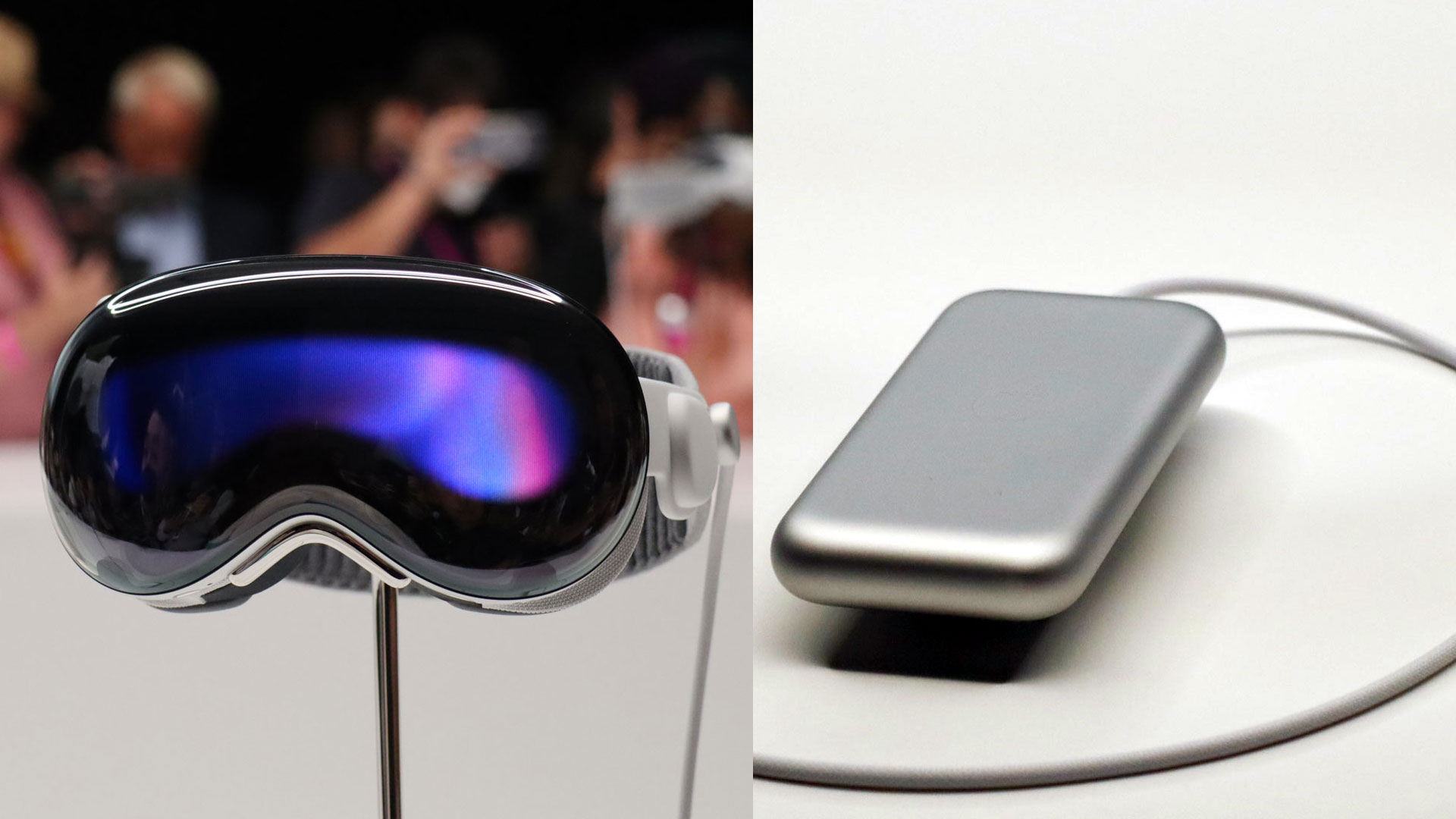
Let's start with the most basic and salient fact: Apple Vision Pro is not wireless. It has an external battery I have seen, touched, and sat beside. It's not a secret. It should not be a surprise. Somehow, though, it is generating more interest and controversy than almost any other component of the about-to-ship product.
It's been nearly seven months of covering Apple's Vision Pro mixed reality headset (which ships on February 2). This includes four hands-on experiences and considerable deep dives into the specifications and use of the world's first "Spatial Computer." Apple's created a remarkable piece of hardware that, despite similarities to other mixed reality and virtual reality headsets I've worn over the years, is also unlike any of them. I like it and wish it was a whole lot cheaper.
From the moment I first saw the headset in June at Apple Park where Apple had positioned a dozen or so of them in a circle and frenzied journalists carouseled around them, angling to get good photos or videos of the products we could not touch, there was the cable and battery. I took pictures of it and noted how the brick looked like the aluminum back of an original iPhone (I still don't think that's an accident.)
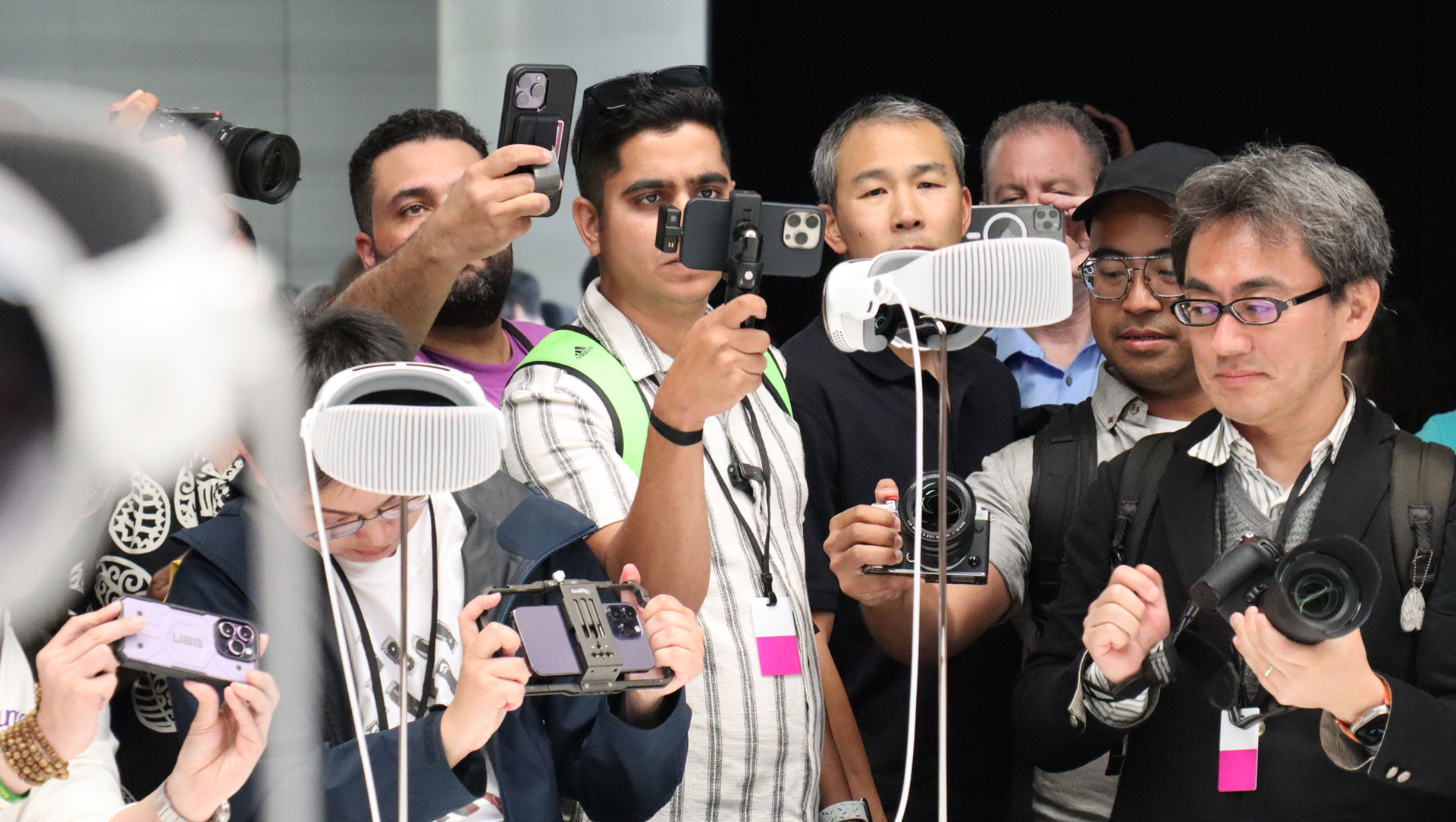
Later that same day, I took my first Vision Pro test drive. Apple had me sit down and helped position the cable that ran from the left side of the headset so it wasn't in the way. My eyes traced that cable down to the battery brick that was sitting casually on the cushion beside me. When I stood up to stand "nose-to-nose" with a dinosaur, someone handed me the battery so I could carry it with me.
During my most recent demo, I stood up again but this time someone held the battery for me, and, for the first time, my arm caught the battery cable when I went to reach for some virtual object.
I never thought Apple was trying to hide the battery, though I will grant that it's doing its Apple best to market it to the sidelines.
At the prospect of this last test drive, and having spent so much time with Vision Pro, I wondered what I might do or see that was new but I knew one thing: Apple was finally letting us photograph ourselves wearing it. That in and of itself made the trip worthwhile.
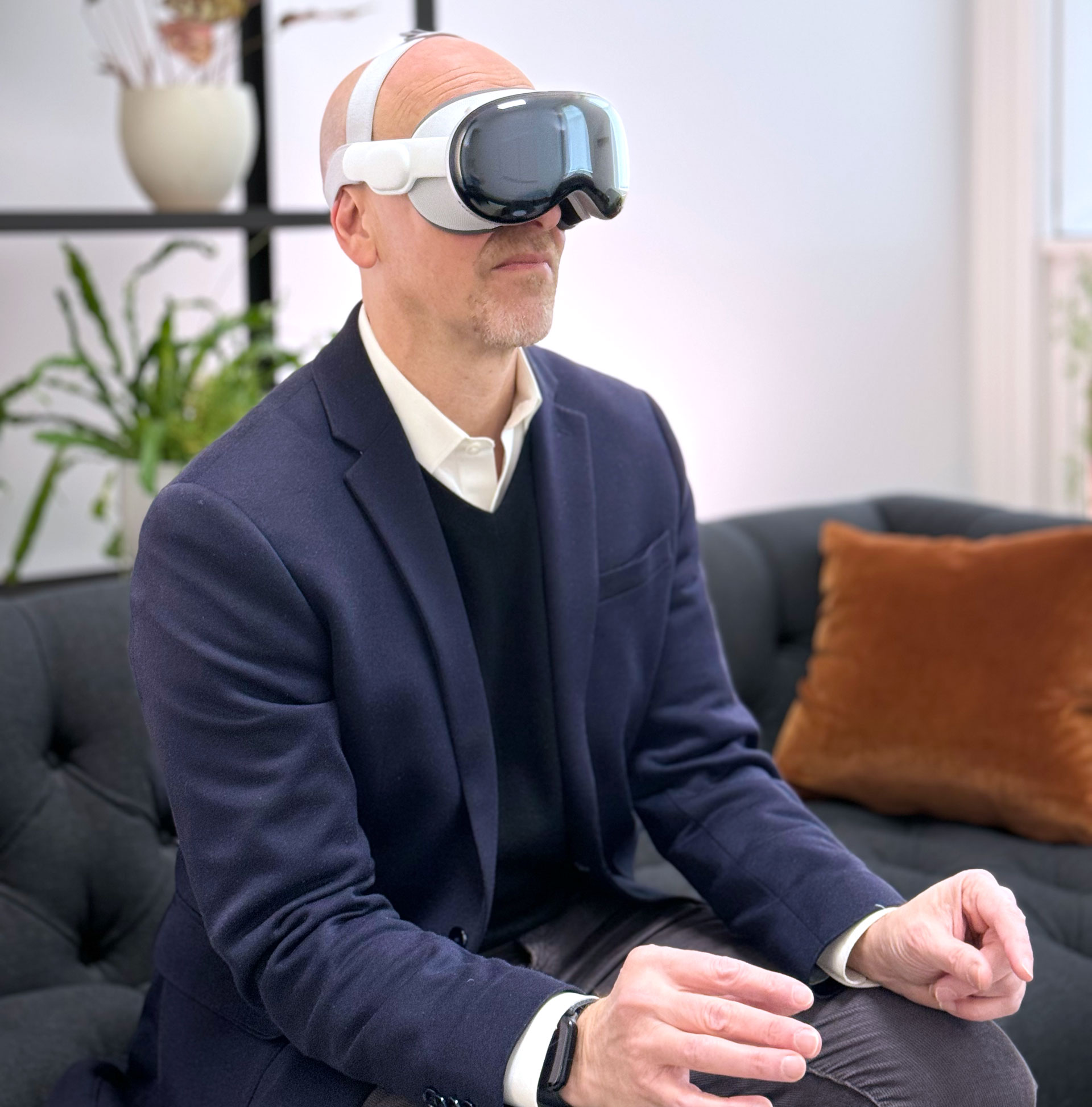
The photographs, which I've since shared in posts and on social media were not, however, taken by me. As far as I know, none of the photos of journalists shared online were taken by them. Apple did the photography, which meant it composed the shots. The fact is, none of the photos I've seen of various media types wearing and using Vision Pro show the MagSafe-style-connected wire or the battery pack.
Did Apple do this on purpose? Probably. Vision Pro does look better without that cable and the battery pack lying lifelessly on the couch beside the wearer.
Is Apple trying to hide something?
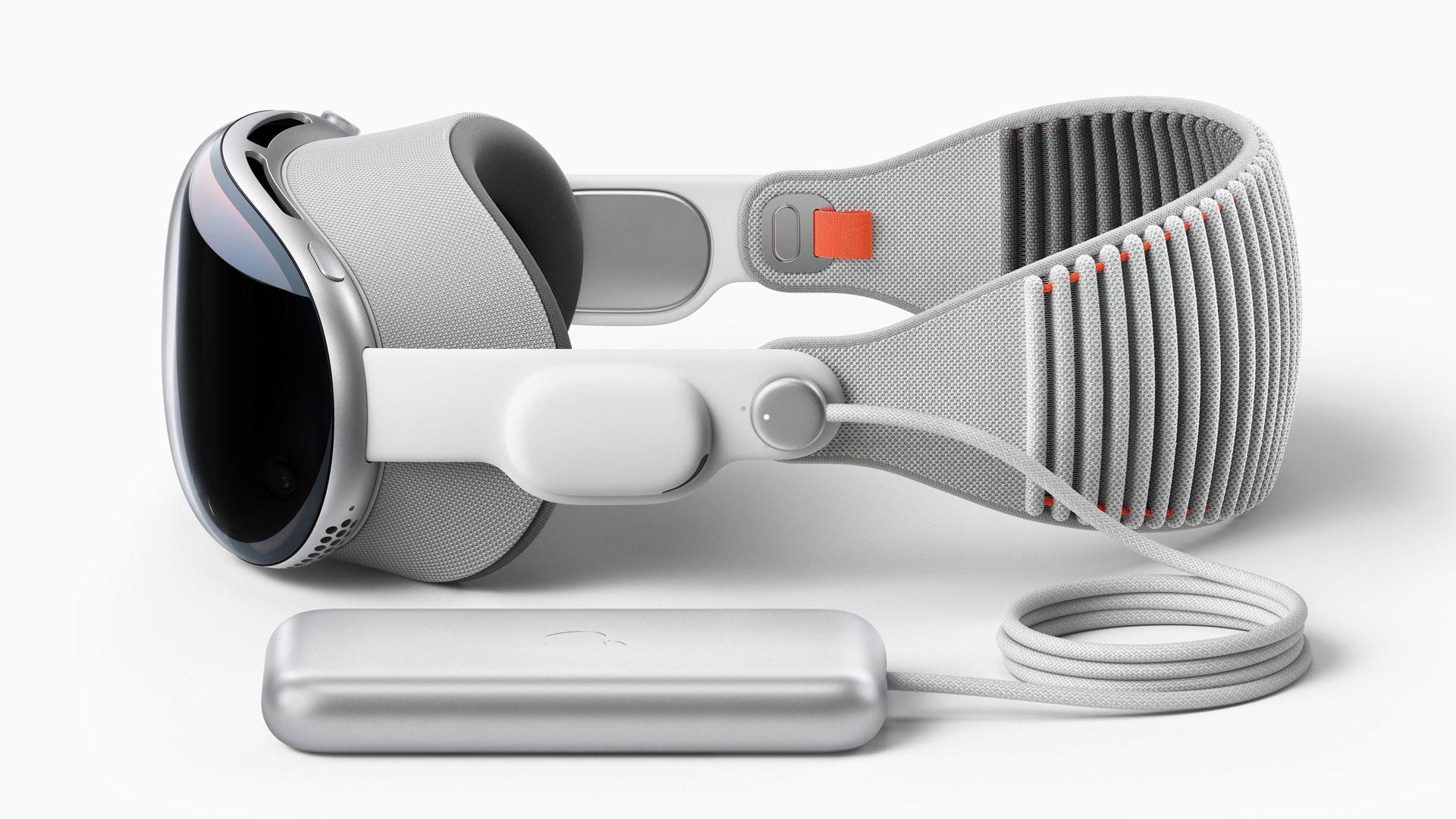
I still don't think so. The battery pack is on display in every launch story, it's featured in press and marketing materials, and on the Apple Vision Pro website as one of the items in the box (along with the lens cover, polishing cloth, Solo Knit Band, Dula Loop Band, charge adapter, and USB-C charge cable). Apple is promoting a Belkin Battery Holder for Apple Vision Pro ($49.95), an item that will certainly come in handy if you want to move about.
Apple is open about how long you can use Vision Pro on battery power (2 hours) and that you can still use the headset while charging the little brick.
None of this is to say that Apple is not trying to have its cake and eat it, too. The roughly 1 lb. Vision Pro features all the earmarks of Apple's iconic design prowess. The brushed aluminum body that virtually blends with the molded glass face looks and feels like the most timeless Apple design work. It's Jony Ive beauty without Jony Ive (as far as I know the legendary former Apple designer did not work on this project). The battery is an appendage, a technical decision made with undeniable consequences.
Wearables demand not just pleasing aesthetics but comfort. I'd put comfort ahead of good looks and I think most VR designers do, too. Meta Quest Pro is not a lovely VR headset, but it does a good job of balancing its 1.6 lb weight on the front and back of your head. It, like most modern VR headsets I've used, integrates the battery. Headsets like this are, perhaps, heavier and bulkier than you might want for this reason.
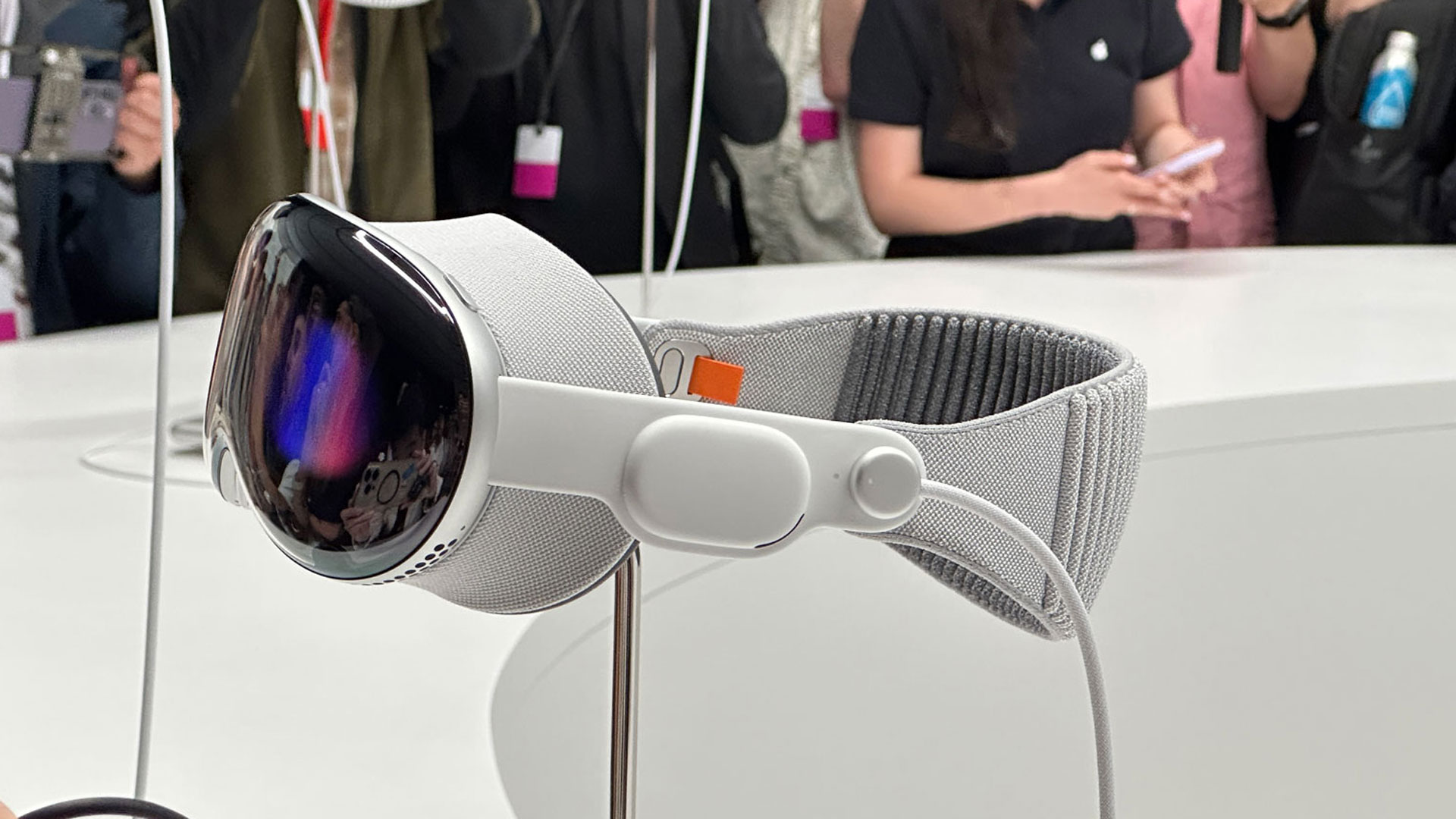
Apple Vision Pro's goggle-like design and, possibly, Apple's insistence on using some materials like aluminum and glass that might weigh more than plastic, while needing to keep the weight as close to a pound and a half, meant something had to give.
That roughly half-pound battery brick could just as easily have been attached to the back of the headset, maybe built into the Solo Knit Band. I bet there are early prototypes that feature this. Apple, though did the least Apple thing and kept the battery separate.
Apple's desire for clean designs and equally polished marketing are at cross purposes with the niggling fact of the Vision Pro battery. Apple won't be running any commercials that focus on the battery and I bet the battery pack will be featured glancingly in any that do make it to air.
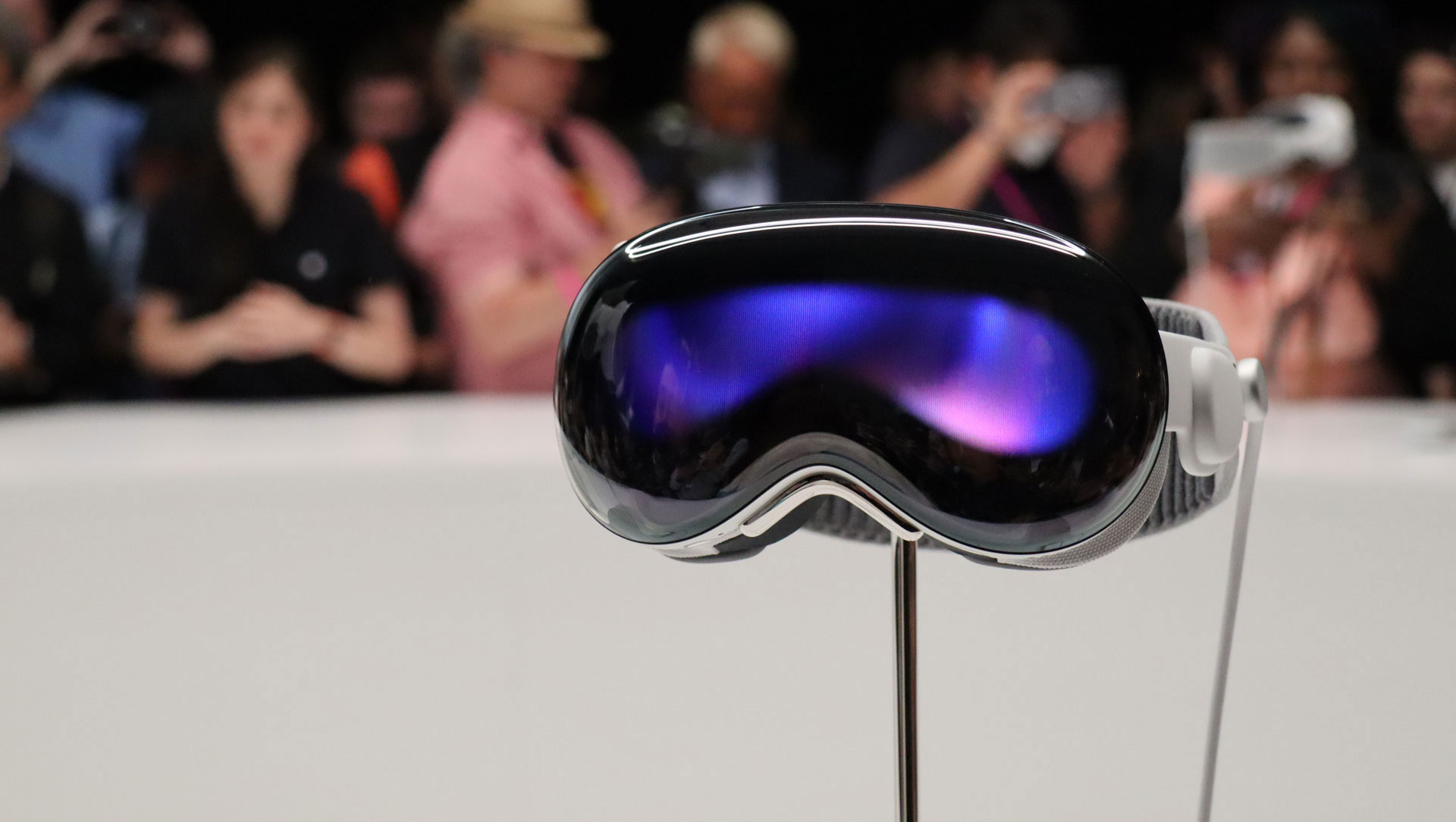
But Apple can't hide the battery. It's a fact established on day one and while I know Apple did its best to present the cleanest view of its new headset, I don't see this as a bait-and-switch.
Anyone who is preparing to spend $3,499 (or more) on a Vision Pro will, one would hope, pore over the website to learn all about it. No one is buying a Vision Pro because of the photo of me wearing it. If all you know about the headset is what you learned from seeing those photos and then make assumptions based on that, well then, you're doing yourself a disservice.
So, let me make this as clear as possible. The Apple Vision Pro is a mixed-reality headset that requires an external battery and cable. It won't work without it. I understand if this bothers you, especially since Apple is asking for at least one month's home mortgage payment to own one. None of this makes it a secret or a lie. Apple's choice becomes your choice. You either buy it and accept the battery or don't and maybe look to far cheaper, battery-integrated options.
You might also like
- This Apple Vision Pro deep dive showed me all I was missing
- Seeing your own spatial video on Vision Pro is an immersive trip – and I highly recommend it
- I tried the iPhone 15 Pro's new spatial video feature, and it will be the Vision Pro's killer app
- Early Apple Vision Pro testers complain about the headset's weight
- Disney Plus joins forces with Apple to beam 3D movies into your home using Vision Pro
Get daily insight, inspiration and deals in your inbox
Sign up for breaking news, reviews, opinion, top tech deals, and more.

A 38-year industry veteran and award-winning journalist, Lance has covered technology since PCs were the size of suitcases and “on line” meant “waiting.” He’s a former Lifewire Editor-in-Chief, Mashable Editor-in-Chief, and, before that, Editor in Chief of PCMag.com and Senior Vice President of Content for Ziff Davis, Inc. He also wrote a popular, weekly tech column for Medium called The Upgrade.
Lance Ulanoff makes frequent appearances on national, international, and local news programs including Live with Kelly and Mark, the Today Show, Good Morning America, CNBC, CNN, and the BBC.